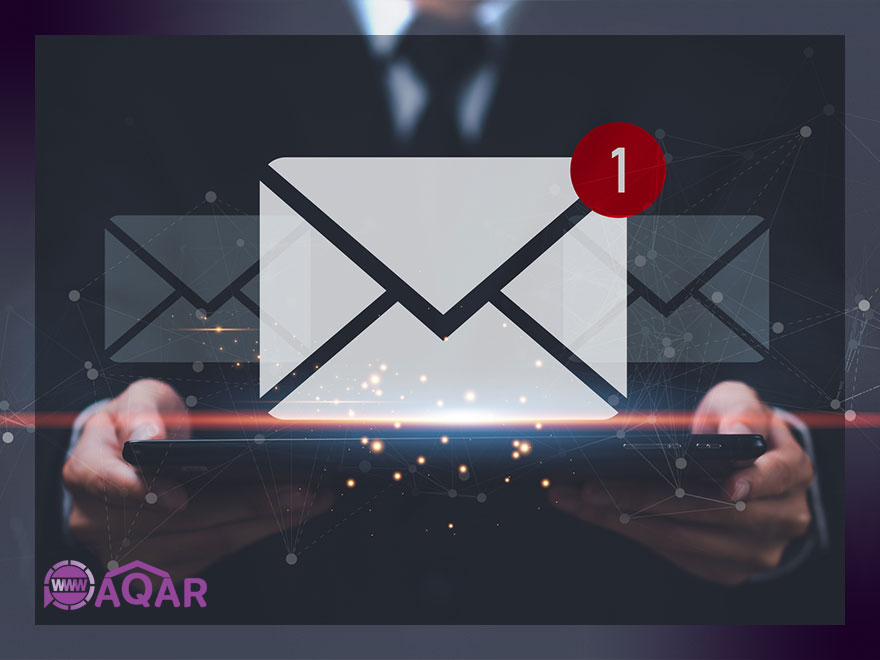In an industry where 87% of real estate agents leave within five years due to insufficient earnings, smart realtors are turning to email marketing to build sustainable, profitable businesses. While many agents struggle to generate consistent leads and maintain client relationships, those who master email marketing strategies enjoy a significant competitive advantage.
Email marketing delivers an impressive $42 return on investment for every $1 spent, making it the most cost-effective marketing channel available to real estate professionals. Unlike social media platforms where algorithms control your reach, email gives you direct access to your audience’s inbox, allowing you to nurture relationships and guide prospects through the lengthy real estate journey.
This comprehensive guide will walk you through the essential email marketing strategies every realtor should implement to build a thriving real estate business. From creating compelling campaigns to measuring success, you’ll discover proven tactics that generate leads, close deals, and create lasting client relationships.
Why Email Marketing is Critical for Real Estate Success
Real estate email marketing isn’t just another marketing tactic—it’s a business necessity. Email marketing delivers $42 ROI for every $1 spent, significantly outperforming social media ads which typically generate only $5 for every dollar invested. This dramatic difference makes email marketing the cornerstone of successful real estate marketing strategies.

The real estate industry faces unique challenges that make email marketing particularly valuable. Unlike retail purchases, real estate transactions involve long sales cycles, often spanning 6-18 months for buyers and sellers. During this extended period, consistent communication becomes crucial for staying top of mind with potential clients.
Consider this: 39% of sellers find their real estate agent through referrals from satisfied clients. Email marketing helps generate these valuable referrals by maintaining regular contact with past clients, ensuring you remain their go-to resource for real estate needs. When past clients receive your monthly market updates and helpful tips, they’re more likely to recommend your services to friends and family.
Unlike social media platforms where algorithms determine who sees your content, email gives you complete control over your messaging and audience reach. Your carefully crafted email campaigns land directly in subscribers’ inboxes, bypassing the uncertainty of social media visibility. This direct communication channel allows you to nurture leads effectively and guide them through the buying or selling process at their own pace.
The mobile revolution has made email even more powerful for real estate professionals. With over 80% of users accessing emails via mobile devices, your property listings, market insights, and valuable content reach potential clients wherever they are. This accessibility means your latest listings can capture attention during a prospect’s lunch break or evening commute.
Essential Email Campaign Types for Realtors
Successful real estate email marketing relies on diverse email campaigns that serve different purposes throughout the client journey. Each campaign type addresses specific needs and helps move prospects closer to making real estate decisions.

Welcome series for new subscribers represent your first opportunity to make a lasting impression. These automated email sequences should introduce your services, establish your expertise, and set clear expectations for future communications. A well-designed welcome email immediately delivers promised lead magnets like market reports or buyer guides while positioning you as a trusted local expert.
Property listing alerts keep your audience engaged with fresh content while showcasing your active business. These email campaigns should feature high-quality photos, virtual tour links, and compelling property descriptions. Include relevant details like school districts, neighborhood amenities, and recent comparable sales to provide comprehensive value beyond basic listing information.
Monthly market update newsletters establish your authority as a local market expert. These email marketing campaigns should feature local statistics, price trends for 2025, inventory levels, and predictions for upcoming months. Include charts showing average days on market, median home prices, and neighborhood-specific data that helps readers understand market conditions affecting their decisions.
Seasonal home maintenance tips demonstrate ongoing value while keeping your brand visible year-round. Send winterizing advice in November, spring cleaning tips in March, and summer preparation guidance in May. These helpful emails position you as a caring advisor who supports homeowners beyond transaction completion.
Client success stories and testimonials build social proof while showcasing your track record. Feature recent closings with client photos, highlight unique challenges you solved, and include specific results like sale prices or time to close. These marketing emails help prospects envision successful outcomes when working with you.
Open house invitations create immediate engagement opportunities while building your email list. Include RSVP tracking to gauge interest levels and implement follow-up sequences for attendees. Feature upcoming events prominently with clear calls to action encouraging registration and sharing with interested friends.
Building and Growing Your Email List
Building a robust email list forms the foundation of successful real estate email marketing. Quality subscribers who genuinely interest in your services provide the audience for all your email marketing efforts, making list building a critical ongoing priority.

Create compelling lead magnets that address common real estate concerns and questions. Develop resources like “2025 Home Buyer’s Guide,” “Selling Your Home Checklist,” or “First-Time Buyer’s Timeline” that provide genuine value while capturing email addresses. These valuable resources should showcase your expertise while addressing specific pain points your target audience faces.
Strategically place email opt in forms throughout your website, particularly on high-traffic pages like property listings and blog posts. Visitors viewing specific properties demonstrate active interest, making them ideal candidates for your email campaigns. Create targeted opt-ins offering similar listings or neighborhood market reports that align with their browsing behavior.
Leverage open houses as powerful list-building opportunities by collecting emails with tablets or sign up sheets. Offer exclusive market reports, upcoming listings alerts, or free home valuations in exchange for contact information. Train yourself to naturally discuss the benefits of staying informed about local market trends while capturing leads.
Partner with complementary professionals like mortgage brokers, home inspectors, and contractors for cross-promotion opportunities. These partnerships can expand your reach to qualified prospects who are already engaged in real estate processes. Consider co-hosting educational webinars or creating joint resources that benefit both parties’ audiences.
Host educational webinars on topics like “First-Time Home Buying in 2025” or “Maximizing Your Home’s Value Before Selling” to capture qualified leads. These events position you as an expert while attracting serious prospects ready to engage with real estate professionals. Follow up webinar attendees with targeted email sequences addressing their specific interests.
Implement exit-intent popups on your website offering immediate value like instant home valuations or exclusive listings access. These last-chance opt-ins can capture visitors who might otherwise leave without engaging. Ensure your offers provide genuine value that makes sharing email addresses worthwhile for potential clients.
Email Segmentation for Targeted Messaging
Effective email segmentation transforms generic messaging into highly targeted communications that resonate with specific audience segments. Real estate email marketing succeeds when messages address individual needs, preferences, and timelines rather than broadcasting identical content to everyone.

Segment subscribers by buyer stage to deliver relevant content that matches their current situation. First-time buyers need educational content about the home buying process, mortgage options, and neighborhood information. Move-up buyers focus on timing considerations, equity calculations, and family-friendly amenities. Downsizers seek information about simplified living, maintenance-free options, and community resources for their life stage.
Geographic segmentation allows you to provide hyperlocal value that competitors can’t match. Create separate lists for different neighborhoods, school districts, or price ranges like $300K-500K and $500K+. Send targeted market insights, new listings, and community events specific to each area. Subscribers receive information directly relevant to their location interests rather than generic citywide updates.
Behavioral segmentation based on email engagement, website visits, and property views helps identify hot prospects versus casual browsers. High-engagement subscribers who regularly open emails and click property links deserve more frequent communication and exclusive previews. Less engaged subscribers might prefer monthly summaries rather than weekly updates to prevent unsubscribe requests.
Timeline segmentation addresses the reality that real estate decisions happen on different schedules. Categorize subscribers as ready now, 3-6 months, 6-12 months, or just browsing. Ready-now prospects receive immediate listings and showing opportunities, while longer-term prospects get educational content and market trend information that builds relationships over time.
Property type preferences help deliver precisely targeted listings and market information. Separate subscribers interested in single-family homes, condos, townhouses, or luxury properties to ensure relevant content delivery. A condo-focused subscriber doesn’t need information about large-lot maintenance, while luxury prospects want different amenities and neighborhood information than first-time buyers.
Create VIP segments for high-value clients, past clients, and referral sources who deserve special attention. These important contacts should receive early access to new listings, invitations to exclusive events, and personalized market updates. Nurturing these relationships through targeted email campaigns generates referrals and repeat business that sustain long-term success.
Creating Compelling Email Content
Content quality determines whether your real estate email marketing campaigns generate engagement or get deleted immediately. Compelling content combines valuable information with clear calls to action that guide readers toward desired actions.

Write subject lines that combine urgency with personalization to boost open rates. Examples like “Sarah, 3 new homes under $400K in Westfield” or “Mark, your dream neighborhood just got 2 new listings” create immediate relevance and curiosity. Test different subject lines to identify what resonates best with your audience, aiming for the 20-40% open rates typical in the real estate industry.
Include high-quality property photos, virtual tours, and neighborhood videos that showcase listings professionally. Visual content captures attention in crowded inboxes while demonstrating your marketing sophistication to potential sellers. Ensure all images are mobile-optimized since 70% of emails are opened on mobile devices.
Share local market insights that position you as the neighborhood expert while providing genuine value. Include specific data like “Home prices in downtown rose 8% in Q4 2024” or “Average days on market decreased to 23 days this quarter.” This market intelligence helps readers make informed decisions while reinforcing your expertise and local knowledge.
Provide actionable tips that demonstrate your expertise while helping readers achieve their goals. Share advice like “5 ways to increase your home value before spring selling season” or “How to prepare your home for winter showings.” These helpful tips keep subscribers engaged while showcasing your comprehensive real estate knowledge.
Include clear calls to action that guide readers toward specific next steps. Use phrases like “Schedule your free consultation,” “View all available listings,” or “Download the complete buyer’s guide” to encourage engagement. Make CTAs visually prominent and easy to find within your email design.
Ensure mobile optimization for all email content since most subscribers read emails on smartphones. Use responsive email templates that adapt to different screen sizes, keep text concise, and make buttons large enough for easy tapping. Test your emails across different devices and email clients to ensure consistent appearance and functionality.
Email Automation and Drip Campaigns
Email automation transforms time-consuming manual processes into efficient systems that nurture leads and maintain client relationships without constant intervention. Well-designed drip campaigns keep you connected with prospects and clients while you focus on showings, listings, and closings.

Set up automated welcome sequences for new subscribers that deliver immediate value over 5-7 emails spanning two weeks. These email sequences should introduce your services, share your background, provide promised resources, and establish communication expectations. Include market insights, helpful tips, and clear contact information to begin building trust and credibility.
Create nurture campaigns for leads not ready to buy or sell immediately, focusing on long-term relationship building through monthly value-driven content. These automated email sequences might include seasonal tips, market updates, success stories, and educational resources that keep you top of mind. Design these campaigns to run for 6-12 months, accommodating the extended real estate decision timeline.
Implement post-closing follow-up sequences at 30, 60, and 90 days to request testimonials, encourage referrals, and maintain relationships with satisfied clients. These automated emails can include home maintenance reminders, local service provider recommendations, and market updates relevant to their new neighborhood. Follow-up communications often generate valuable referrals when clients remember your helpful ongoing support.
Use birthday and anniversary emails to maintain personal connections with past clients throughout the year. These automated touches keep your brand visible while demonstrating attention to important dates. Include market updates relevant to their property and gentle reminders about your availability for future real estate needs or referral opportunities.
Set up property alert automations based on saved search criteria to deliver relevant listings immediately when they match subscriber preferences. These timely notifications can capture buyer interest before competitors reach the same prospects. Ensure alerts include comprehensive property information, photos, and easy contact methods for immediate follow-up.
Create seasonal campaigns targeting spring sellers and fall buyers with content tailored to optimal timing and market conditions. Spring campaigns might focus on preparing homes for peak selling season, while fall content addresses year-end buying opportunities and market predictions for the following year. These campaigns align your messaging with natural real estate cycles.
Measuring Email Marketing Success
Understanding email marketing performance requires tracking key metrics that reveal campaign effectiveness and guide optimization efforts. Regular analysis helps you identify successful strategies while addressing areas needing improvement.

Track open rates consistently, aiming for the 20-40% range typical in the real estate industry. Low open rates often indicate subject line problems, sending frequency issues, or list quality concerns. High-performing real estate agents often achieve 30%+ open rates through targeted content and compelling subject lines that create urgency and relevance.
Monitor click through rates, targeting 15% or higher for effective calls to action. Low click through rates suggest content relevance problems or weak CTAs that fail to motivate action. Analyze which email campaigns generate the highest CTR to identify successful content formats and messaging approaches.
Measure conversion rates from email campaigns to appointment bookings, listing inquiries, and other meaningful actions. Track how many email recipients actually schedule consultations, request property information, or attend open houses. These conversion metrics reveal your email marketing campaign’s true business impact beyond basic engagement statistics.
Keep unsubscribe rates below 2% to maintain healthy list growth and engagement. High unsubscribe rates indicate content problems, sending frequency issues, or audience targeting mistakes. Monitor unsubscribe reasons when possible to identify specific improvement opportunities.
Analyze which subject lines and content types generate highest engagement through systematic testing and comparison. Track performance differences between market updates, property listings, and educational content to optimize your content mix. Use this data to refine your email marketing strategy and focus on highest-performing content types.
Use Google Analytics to track website traffic and conversions generated by email campaigns. Set up tracking codes to identify which emails drive the most website visits, listing views, and contact form submissions. This comprehensive analysis reveals your email marketing efforts’ full impact on lead generation and business growth.
Email Marketing Tools and Technology
Selecting the right email marketing software significantly impacts your campaign effectiveness and efficiency. Modern platforms integrate with CRM systems while providing automation features essential for real estate professionals.

Choose CRM-integrated platforms like Mailchimp, Constant Contact, or ActiveCampaign that synchronize contact information and interaction history. Integration eliminates duplicate data entry while enabling sophisticated segmentation based on lead sources, property interests, and engagement levels. Look for platforms offering real estate-specific templates and features.
Use video email tools like BombBomb for personalized property tours and introductions that build stronger connections with prospects. Video emails generate higher engagement rates while allowing you to showcase personality and expertise more effectively than text alone. Create virtual property tours, market update videos, and personalized introduction messages.
Implement AI tools like ChatGPT for email copywriting and subject line generation that saves time while maintaining quality. These tools can help generate monthly newsletter content, property descriptions, and follow-up email sequences. Always review and customize AI-generated content to ensure accuracy and brand consistency.
Utilize scheduling tools to send emails at optimal times when your audience most likely engages. Research suggests Tuesday through Thursday between 10 AM and 2 PM often yields highest open rates, though testing with your specific audience reveals optimal timing. Automated scheduling ensures consistent delivery regardless of your daily schedule.
Ensure GDPR and CAN-SPAM compliance with proper unsubscribe options and accurate sender information. Include your business address, clear unsubscribe links, and honest subject lines in all marketing emails. Compliance protects your reputation while avoiding potential legal issues that could damage your real estate business.
Integrate with MLS systems for automatic property update emails that keep subscribers informed about new listings, price changes, and market activity. This integration saves time while ensuring timely delivery of relevant property information. Automated MLS integration helps you stay competitive in fast-moving real estate markets.
Advanced Email Marketing Strategies
Advanced email marketing strategies elevate your campaigns beyond basic newsletters and listing alerts to create sophisticated nurturing systems that consistently generate leads and referrals.

Personalize emails beyond first names using past search behavior and preferences to create highly relevant content. Reference specific neighborhoods they’ve viewed, property types they’ve shown interest in, and price ranges they’ve indicated. This behavioral personalization demonstrates attention to their needs while increasing engagement significantly.
Create exclusive VIP lists for high-value clients offering early access to new listings before public marketing begins. These premium subscribers might include past luxury clients, qualified high-end buyers, and important referral sources. VIP treatment builds loyalty while generating faster sales through motivated, pre-qualified prospects.
Use retargeting emails for website visitors who viewed specific properties but didn’t inquire immediately. These automated sequences can include similar listings, neighborhood information, and gentle follow-up messages encouraging contact. Retargeting captures interested prospects who might otherwise be lost without systematic follow-up.
Implement A/B testing for subject lines, send times, and email layouts to continuously optimize performance. Test one element at a time to identify specific improvements, comparing open rates, click through rates, and conversion rates between variations. Systematic testing reveals what resonates best with your specific audience.
Send just-sold and just-listed announcements to showcase market activity and maintain visibility in target neighborhoods. These updates demonstrate your active business while creating urgency among potential sellers and buyers. Include recent sales data and market insights that position you as the local market leader.
Create neighborhood-specific email lists for hyperlocal marketing that addresses micro-market conditions and opportunities. Develop separate campaigns for different subdivisions, school districts, or geographic areas with tailored content addressing specific community issues, events, and market conditions. This hyperlocal approach builds stronger community connections while demonstrating intimate neighborhood knowledge.
Develop seasonal email campaigns that align with natural real estate cycles and seasonal concerns. Spring campaigns might focus on selling preparation and market predictions, while winter content addresses buying opportunities and market activity during slower periods. Seasonal alignment makes your content more relevant while addressing timely concerns.
Conclusion
Email marketing strategies provide real estate agents with powerful tools for building sustainable, profitable businesses in an increasingly competitive industry. From automated drip campaigns that nurture leads through extended sales cycles to targeted segmentation that delivers relevant content to specific audiences, these strategies address the unique challenges facing real estate professionals.
The impressive $42 ROI that email marketing delivers makes it an essential component of any successful real estate marketing strategy. By implementing welcome sequences, property alerts, market updates, and advanced personalization techniques, you create multiple touchpoints that keep you top of mind with prospects and past clients throughout their real estate journey.
Success with real estate email marketing requires consistent implementation, regular measurement, and continuous optimization based on performance data. Start with basic campaigns like welcome sequences and property alerts, then gradually implement more sophisticated strategies like behavioral segmentation and automated follow-up sequences.
The real estate agents who thrive in today’s market are those who embrace technology while maintaining personal relationships. Email marketing provides the perfect balance, allowing you to deliver valuable content at scale while creating opportunities for meaningful one-on-one interactions that close deals and generate referrals.
Begin implementing these email marketing strategies today by choosing appropriate email marketing software, creating your first lead magnet, and setting up automated welcome sequences for new subscribers. Your future self will thank you for building these systems that generate leads and maintain client relationships while you focus on what you do best—helping people buy and sell homes.
Read more:



3 thoughts on "Email Marketing Strategies Every Realtor Should Use"